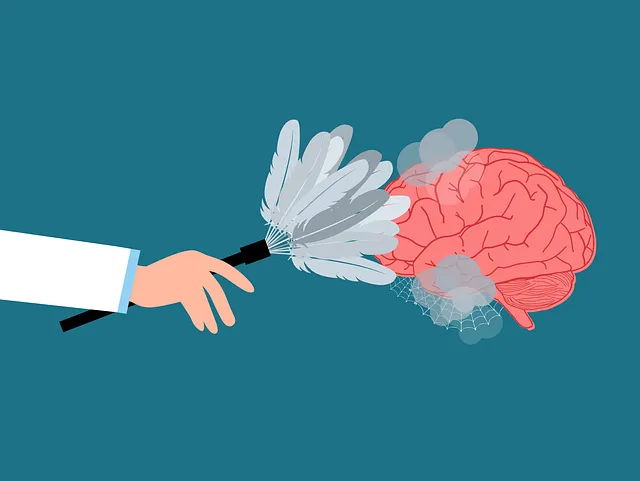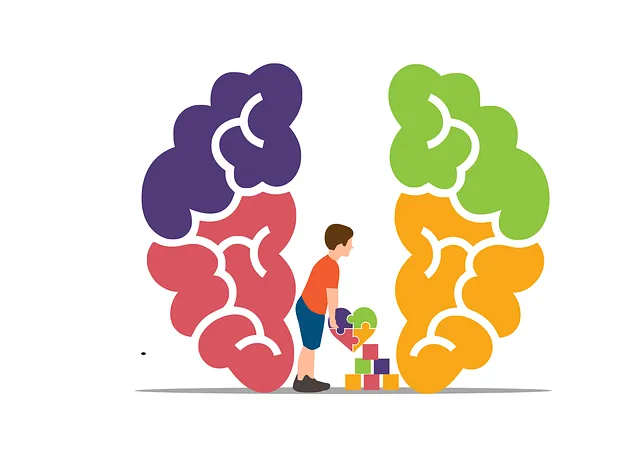The Castle Rock Kaiser Permanente (CRKP) mental health facility prioritizes cultural diversity, offering tailored care through staff training in compassion cultivation and self-awareness. This inclusive approach builds trust, improves communication, and encourages individuals to seek essential mental health services. CRKP integrates an understanding of diverse cultural backgrounds into treatment plans, focusing on personalized care, cross-cultural communication, and ethical decision-making. They incorporate traditional healing practices from various cultures and empower individuals with mood management programs, achieving remarkable results in treating mental health conditions while fostering inclusivity and open dialogue.
Cultural sensitivity is an essential aspect of providing quality mental healthcare, especially within diverse communities. This article explores the significance of cultural awareness at Castle Rock Kaiser Permanente (CRKP) mental health facility, where a nuanced approach to treatment has led to improved patient outcomes and satisfaction. We delve into the ethical considerations of multicultural environments and present practical strategies for delivering culturally competent care. Through case studies, we highlight successful implementations at CRKP, offering valuable insights for healthcare professionals striving to provide inclusive mental health services.
- Understanding Cultural Diversity in Mental Healthcare at Castle Rock Kaiser Permanente
- The Impact of Cultural Sensitivity on Patient Outcomes and Satisfaction
- Navigating Ethical Considerations in a Multicultural Environment
- Practical Strategies for Providing Culturally Competent Care
- Case Studies: Successful Implementation of Cultural Sensitivity at CRKP Mental Health Facility
Understanding Cultural Diversity in Mental Healthcare at Castle Rock Kaiser Permanente

Castle Rock Kaiser Permanente’s mental health facility recognizes and embraces cultural diversity as a cornerstone of its practice. In an increasingly multicultural society, understanding and respecting various cultural backgrounds, beliefs, and values are essential to providing effective care. The facility offers tailored services that address the unique needs of each patient, ensuring they receive support in their preferred language and according to their cultural traditions.
This approach involves training staff in compassion cultivation practices and self-awareness exercises to enhance their understanding and sensitivity. By fostering an environment where patients feel heard, seen, and respected, Castle Rock Kaiser Permanente aims to build trust and promote open communication, ultimately boosting the confidence of individuals seeking mental health services.
The Impact of Cultural Sensitivity on Patient Outcomes and Satisfaction

Cultural sensitivity plays a pivotal role in shaping patient outcomes and satisfaction at mental health facilities like Castle Rock Kaiser Permanente. By incorporating an understanding of diverse cultural backgrounds, beliefs, and values into treatment plans, healthcare providers can offer more personalized and effective care. This approach not only fosters trust between patients and caregivers but also enhances engagement in treatment, leading to improved clinical outcomes.
For instance, a culturally sensitive mental health facility might employ burnout prevention strategies for healthcare providers, such as encouraging self-care practices and mindfulness meditation, to ensure staff members remain attuned to the unique needs of their diverse patient population. This, in turn, allows providers to address not just the symptoms but also the underlying cultural factors contributing to a patient’s mental health challenges, thereby boosting satisfaction levels among patients who feel truly heard and understood.
Navigating Ethical Considerations in a Multicultural Environment

In a multicultural society like that surrounding the Castle Rock Kaiser Permanente mental health facility, ethical considerations take on new layers of complexity. Navigating differences in cultural beliefs, values, and expressions of distress requires a nuanced approach to ensure equitable and effective care. For instance, what might be considered a crisis in one culture could be seen as a normal emotional expression in another. Healthcare providers at Castle Rock Kaiser Permanente must be adept at understanding these nuances, fostering cross-cultural communication, and applying ethical decision-making models that prioritize respect, autonomy, and beneficence.
Integrating Compassion Cultivation Practices and Burnout Prevention Strategies for Healthcare Providers is paramount in this context. Training in crisis intervention (including Crisis Intervention Guidance) equips staff to respond sensitively while minimizing potential cultural missteps. By cultivating compassion and self-care, providers can sustain their emotional resilience, maintain objectivity, and ultimately deliver high-quality care that respects the diverse backgrounds of every patient they serve.
Practical Strategies for Providing Culturally Competent Care

At Castle Rock Kaiser Permanente mental health facility, providing culturally competent care involves a deep understanding and appreciation for diverse cultural backgrounds. One practical strategy is to incorporate patients’ cultural beliefs and practices into treatment plans, ensuring that interventions align with their values and traditions. This might include offering traditional healing practices as part of therapy, such as incorporating mindfulness techniques inspired by Eastern philosophies or using art therapy methods rooted in indigenous cultures.
Additionally, educating both staff and patients about cultural sensitivity is vital. Training programs can help mental health professionals recognize unconscious biases and learn effective communication strategies tailored to different cultural contexts. Encouraging open dialogue allows patients to share their perspectives and concerns, fostering a safe space where they feel understood. By implementing these practices, Castle Rock Kaiser Permanente aims to not only improve patient outcomes but also promote well-being through inclusive care that addresses not just symptoms of depression or burnout prevention, but also the underlying stressors that may be uniquely influenced by cultural factors, contributing to effective stress reduction methods.
Case Studies: Successful Implementation of Cultural Sensitivity at CRKP Mental Health Facility

At the Castle Rock Kaiser Permanente (CRKP) mental health facility, cultural sensitivity has been successfully integrated into their service delivery model through a series of innovative initiatives. One standout example involves collaborating with local community leaders and organizations from diverse ethnic backgrounds to develop tailored programs that address specific cultural needs. By incorporating traditional healing practices and incorporating them seamlessly with evidence-based therapies, CRKP has achieved remarkable outcomes in treating a wide range of mental health conditions.
These efforts extend beyond clinical care into public awareness campaigns aimed at promoting understanding and reducing stigma. Through workshops, educational seminars, and community events, CRKP fosters an inclusive environment where individuals from all cultural backgrounds can openly discuss mental health challenges. Additionally, they offer programs focused on mood management and self-care routine development for better mental health, ensuring that care is not only culturally sensitive but also empowering individuals to take charge of their well-being.
Cultural sensitivity in mental healthcare is no longer a consideration but a necessity, as evidenced by the successful implementation at the Castle Rock Kaiser Permanente mental health facility. By understanding cultural diversity, navigating ethical considerations, and adopting practical strategies, healthcare providers can significantly enhance patient outcomes and satisfaction. The case studies presented highlight that embracing cultural competency not only improves access to care but also fosters better relationships between patients and providers, ultimately revolutionizing mental healthcare practices at the Castle Rock Kaiser Permanente facility and beyond.






